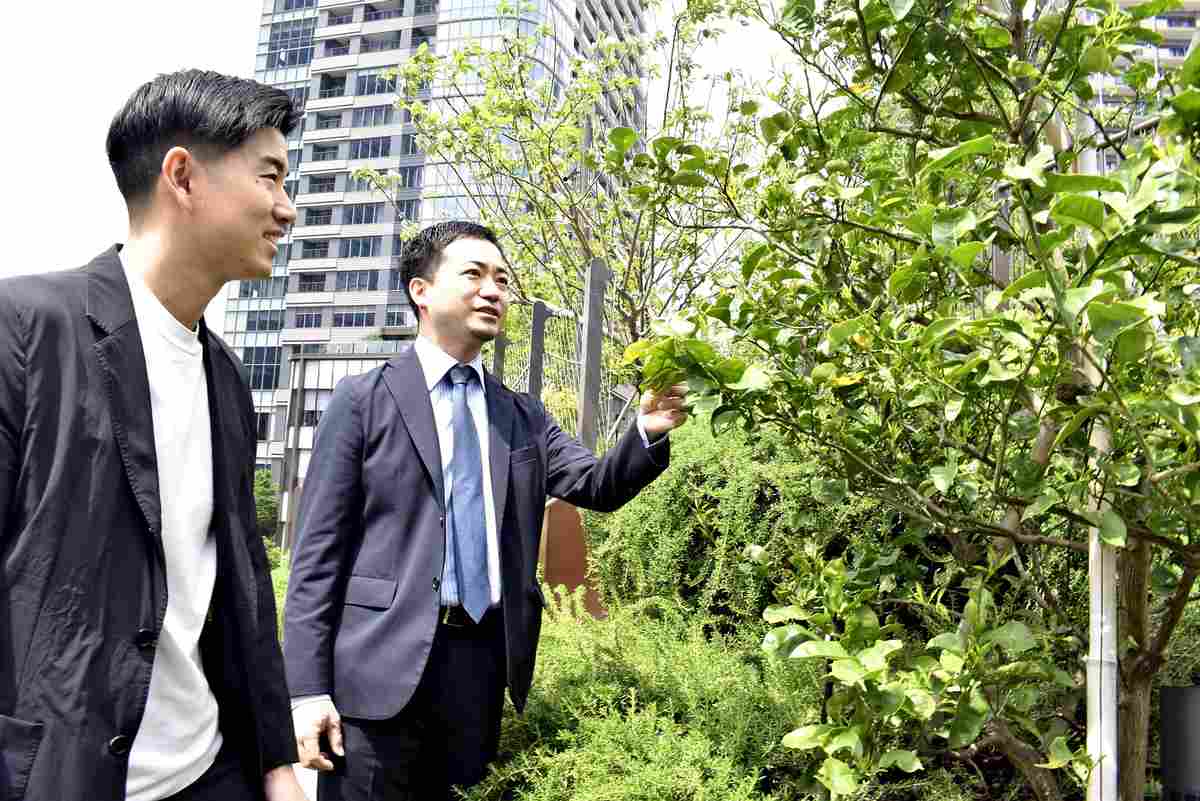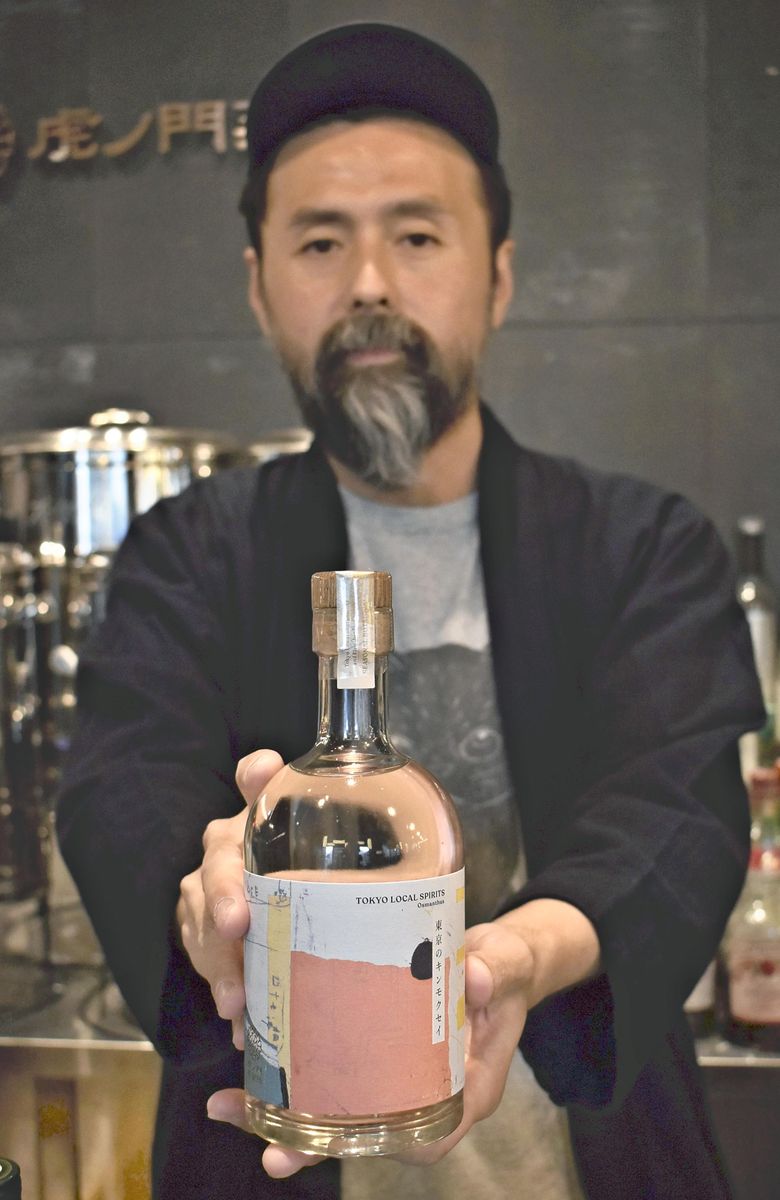July 8, 2025
TOKYO – The production of “Tokyo-made craft gin” using fruits and water sourced within the metropolis is gaining momentum. As gin is growing in popularity as a spirit that can be used in various cocktails, gin makers also hope to draw attention to Tokyo’s natural environment.
At the bar counter of the Janu Tokyo hotel in the Azabudai Hills complex in Minato Ward, a refreshing aroma of citrus fruits filled the air when Toshio Imai, the assistant director of the hotel’s food and beverage division, poured his original gin into a glass filled with ice.
He added tonic water to it, making a gin and tonic, the bar’s most popular cocktail.
“The aroma of the fruit fills your mouth, and the taste is refreshing,” he said.

The Ethical Spirits CEO Chikara Ono, left, and an official of Mori Building Co. tour the fruit orchard at Azabudai Hills in Minato Ward, Tokyo. PHOTO: THE YOMIURI SHIMBUN
Yuzu and kabosu grown at Azabudai Hills are used to make the gin. There is an orchard where about 20 types of botanicals, such as mandarin oranges and herbs, are grown on the sunny slope in Azabudai Hill’s central square. According to Mori Building Co., which manages the complex, they have made efforts to create an environment conducive to crop growth by mixing leaf mold into the artificial soil.
After learning about the orchard at Azabudai Hills, Imai and others decided to create a gin using these botanicals. They collaborated with The Ethical Spirits, a craft gin maker in Taito Ward, to produce an original gin. The gin was produced with even more time and care than usual, resulting in a stronger fruity aroma. Chikara Ono, chief executive officer of the company, said, “We want people to enjoy the aroma of produce grown at Azabudai Hills, right in the heart of Tokyo.”
According to Suntory Spirits Ltd. in Minato Ward, gin is easy to make because there are fewer restrictions on ingredients and manufacturing methods than for whisky and tequila. There are more than 140 facilities to produce gin in Japan, which is more than the number of whisky distilleries. The domestic market is also growing, reaching ¥25 billion last year, about 3.5 times greater than in 2019.

Teppei Ichiba from the Toranomon Distillery holds gin made with Tokyo-grown osmanthus. PHOTO: THE YOMIURI SHIMBUN
The high degree of freedom in production methods makes it easy to create “local gin” using local specialties, and production within Tokyo is also expanding. Toranomon Distillery at Toranomon Hills in Minato Ward has produced over 20 types of gin using ingredients such as passion fruit from Hachijojima Island, gardenia from Izu Oshima Island and osmanthus harvested in Tokyo. Teppei Ichiba, a distiller at the distillery, said, “I want people to learn about the rich nature of Tokyo through gin and convey the charm of Tokyo to people overseas.”
Haneda Brewery, which makes beer and gin in Ota Ward, produces a unique gin using thinned cedar and cypress wood from Ome in western Tokyo for flavoring. This also contributes to environmental protection.
Shunsuke Noro, chief of the company’s sales department, hopes that “the scent of the wood will help people relax and encourage them to think about protecting the forest.”
Yutaka Okada, senior researcher at the private think tank Sompo Institute Plus Inc., notes that such craft gins “have the added value of being ‘made in Tokyo,’ which makes them probably more appealing and popular. It is also expected to contribute to enhancing the image of the region and revitalizing it.”

